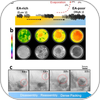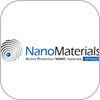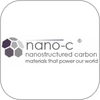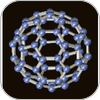NIMS is Japan's sole National Research and Development Agency specializing in materials science. NIMS is charged with basic research and development of materials science, and to advance the level of expertise in the field.
Fullerenes
NanoMaterials Ltd., formerly ApNano – Active Protection NANOmaterials, is a pioneer of inorganic, multi-layered fullerenes. Founded in 2002, NanoMaterials was the first to succeed in the commercial production of inorganic, multi-layered nanofullerenes and nanotubes.
Based on Weizmann Institute of Science patented platform technology, the company’s WS‚-based nanomaterials opened up new possibilities for developing extreme performance lubricants, coatings and polymer composites. These materials feature outstanding extreme temperature (ET) and extreme pressure (EP) properties.
Who we are
We are scientists, engineers, and business professionals; driving breakthroughs in fields as diverse as aerospace, automotive, energy, defense, healthcare, and telecommunications.
We research, develop and commercialize innovative technologies:
Strain & temperature sensing
Test and measurement
Shape sensing
We conduct applied research for customers in our primary areas of focus:
Sensing and instrumentation
Advanced materials
Health sciences
Why it matters
TDA Research, Inc. was founded in 1987 and is located in Wheat Ridge and Golden, CO. TDA’s staff of 84 develops catalysts and sorbents, advanced materials and components. Our development work is primarily supported by government R&D contracts. TDA retains the intellectual property developed under these contracts, and works in partnership with larger manufacturing companies to bring our products to market.
At Nano-C's core is an energy and environmentally efficient combustion-based process technology invented at MIT by Nano-C Founder and MIT Professor Emeritus, Jack B. Howard. Nano-C is the exclusive developer and owner of the advanced II-G technology which has enabled Nano-C to be a leader in the efficient production of high-quality fullerenic materials including C60, C70, C84 and fullerene black. Nano-C's II-G technology offers an order-of-magnitude improvement in performance when compared to its 1st-generation technology licensed to a Japanese company in 2001.









